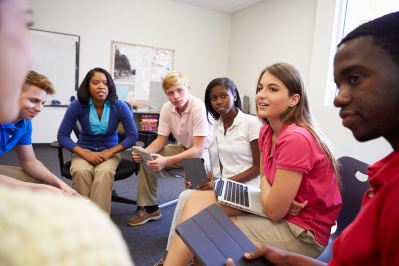Culturally Responsive Instruction through Technology
Effective educational leaders strive for equity of educational opportunity and culturally responsive practices to promote each student’s academic success and well-being. Educational leaders should seek out and employ the latest technology to support teaching and learning in student-centered, culturally and linguistically responsive learning environments.
Technology, including online communication tools, social media, online collaboration platforms, and learning management systems, can facilitate:
- Professional development activities such as:
- Developing and implementing professional learning communities that will work to create culturally and linguistically responsive learning environments that will address diverse students' needs.
- Assisting educators in effectively using technology to facilitate student learning through active engagement.
- Developing educators’ ability to build appropriate supports for students as needed.
- Efforts to recruit, develop, and retain a more diverse and culturally responsive teaching workforce including:
- Collaboration with local schools of higher education to facilitate training of preservice teachers to be more culturally responsive.
- Broadening teacher recruitment efforts.
- A variety of communication approaches, in multiple languages as needed, with families and the community to:
- Keep families informed of school activities and social news
- Provide families and community members the opportunity to offer suggestions and feedback to the school district.
- Creating and offering courses for teachers on students’ cultures to increase teachers’ knowledge of students’ backgrounds to avoid instructional approaches that could interfere with student learning.
- Parents and students could be involved in designing the courses.
- Infusing the learning community’s environment with the tradition, cultures, and languages of the students, their families, and educators.
- Hosting ongoing events and activities in schools that celebrate cultures with opportunities for students to display their knowledge of local cultures.
- Supporting student and educators to create collaborative partnerships with other educators, families, content experts, community members, business and others outside the learning community that enhance individual and group learning.






